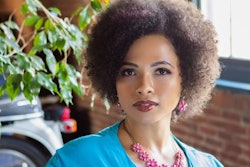Attorney General Settles Voting Rights
Flap at Prairie View A&M
By Lydia Lum
PRAIRIE VIEW, texas
The Texas attorney general has ruled that Prairie View A&M University students must be allowed to register and vote locally.
“This has really energized the student body,” says Hendrik Maison, the student government president. “That’s the most exciting part.”
The ruling, issued last month, may have effectively ended Waller County District Attorney Oliver Kitzman’s challenge to longstanding statewide practices concerning student residence and voting rights. Aside from meeting Texas voter registration requirements, Prairie View students only need to show that they consider Waller County their official residence — even if their address is only a post office box — and that they intend to vote there.
Controversy arose last fall when Kitzman, who is White, told a county elections official that students at the historically Black school northwest of Houston don’t necessarily qualify to vote locally because they are transient residents and that their campus addresses aren’t always their official residences. Kitzman said he would prosecute people who failed to meet his definition of having a legal voting address.
That prompted protests from Black legislators and leaders from around the state, complaining of disenfranchisement. The dispute didn’t call into question the practice of allowing students at predominantly White universities in Texas to vote locally, although a different opinion by the attorney general on the Prairie View matter could have affected other institutions.
Kitzman did not return calls for a Black Issues interview. But in published reports, he said he plans to abide by the attorney general’s ruling.
The controversy spurred members of the 7,000-student campus to hold town hall meetings and take greater interest in the March 9 statewide primary elections. The flap also prompted a voting rights march that drew at least 2,000 students on the Rev. Martin Luther King Jr.’s birthday. On that day alone, Waller County elections officials received 200 voter-registration applications.
Feb. 9 was the registration deadline for the primaries. County election officials reported everything going smoothly. Since the student march, officials have been processing an additional 2,000 registration applications, although many students, not knowing how the attorney general would lean, listed their parents’ addresses. For many students, it will be their first time to vote.
If all eligible Prairie View students turned out at the local polls, they would comprise about one-third of the rural county’s voters. In years past, though, only about 5 percent have voted and have overwhelmingly voted Democrat. Elections officials said that the number of students voting Republican in recent years is only in the single digits.
The voting rights dispute also resulted in the Department of Justice launching a civil rights investigation of Kitzman’s handling of student voting rights. At press time, it was not known whether that inquiry was concluded.
Despite the attorney general’s opinion in their favor, four Prairie View students sued Kitzman, saying they still feared he might prosecute them for registering to vote. Their lawsuit seeks to put the district attorney’s office under a separate, existing court order that forced the county registrar in the 1970s to register Prairie View students.
© Copyright 2005 by DiverseEducation.com





















